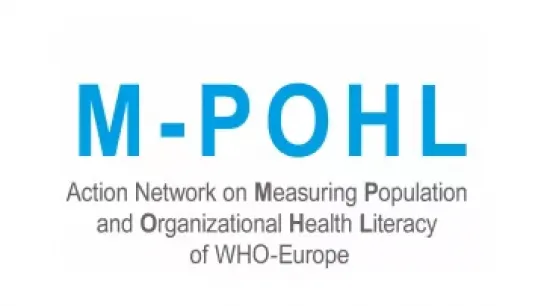
Contact
Get in touch with the M-POHL co-chairs and the International Coordination Centre (ICC) for questions about M-POHL, its projects, and participation.

xy
The International Self-Assessment Tool for Organizational Health Literacy (Respo
xy
Organizational health literacy (OHL) has different objectives. These are:
M-POHL co-chair & Principal Investigator of the International Coordination Center (ICC) of HLS19